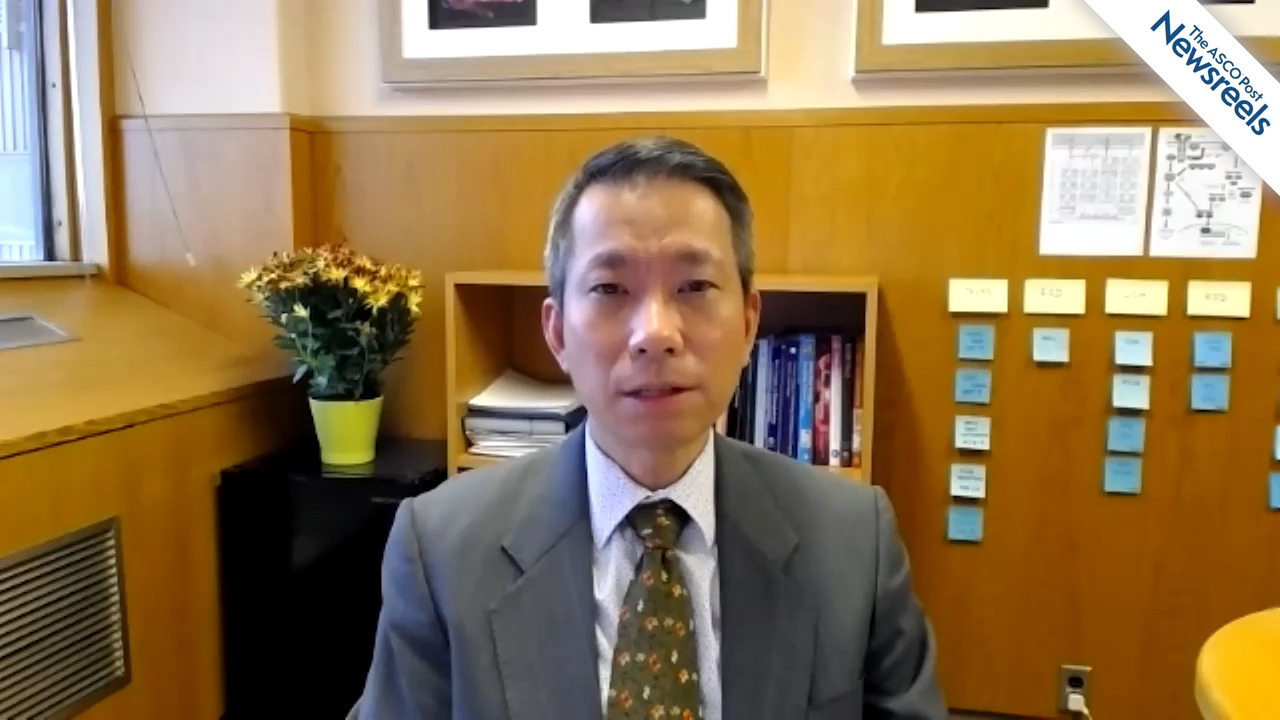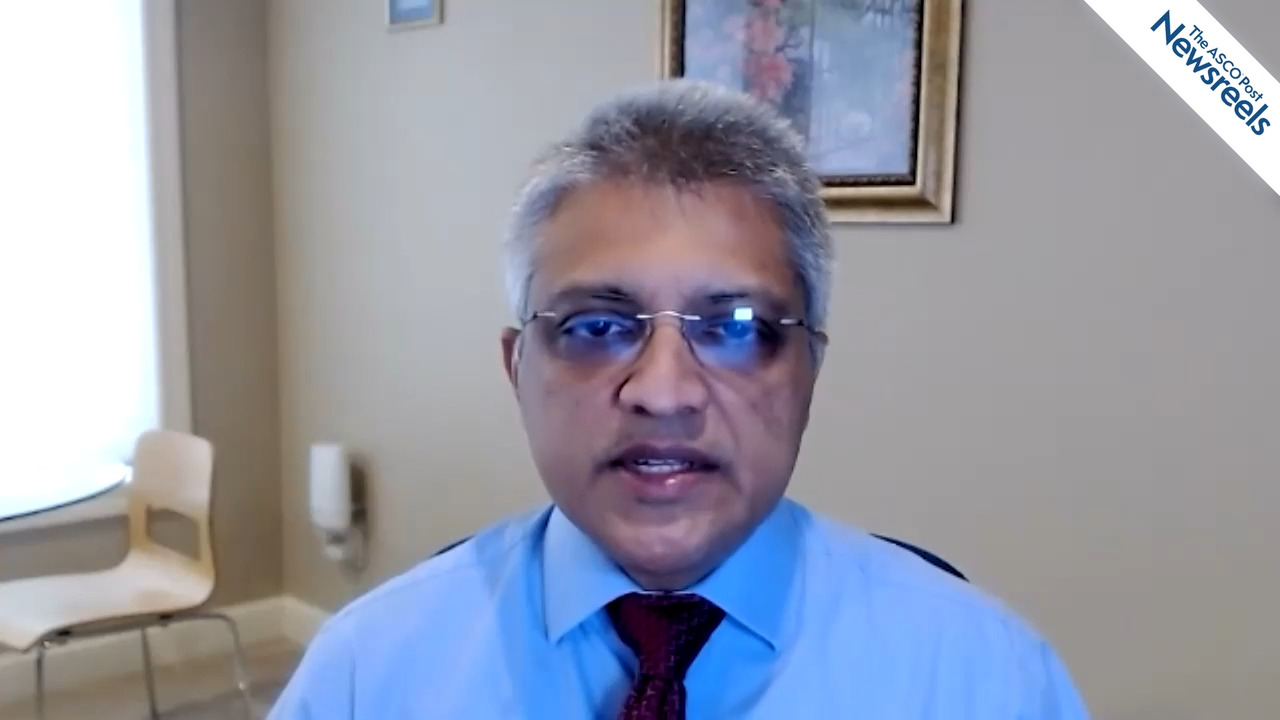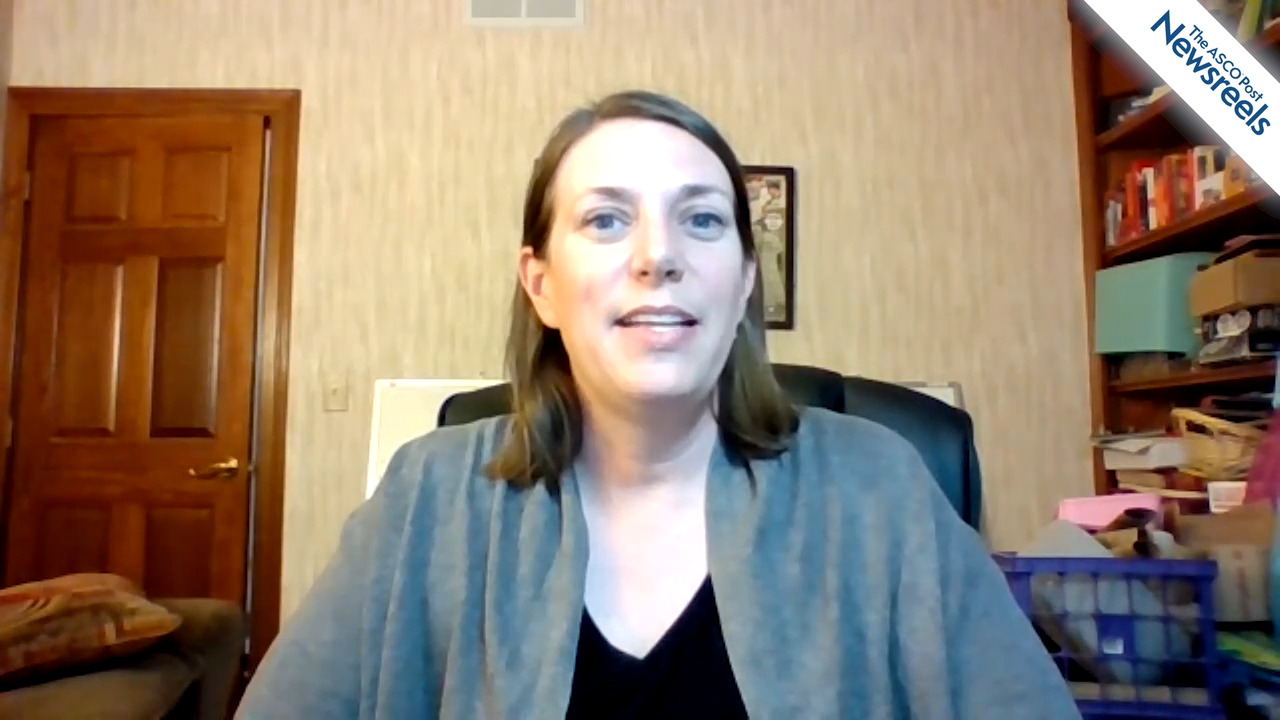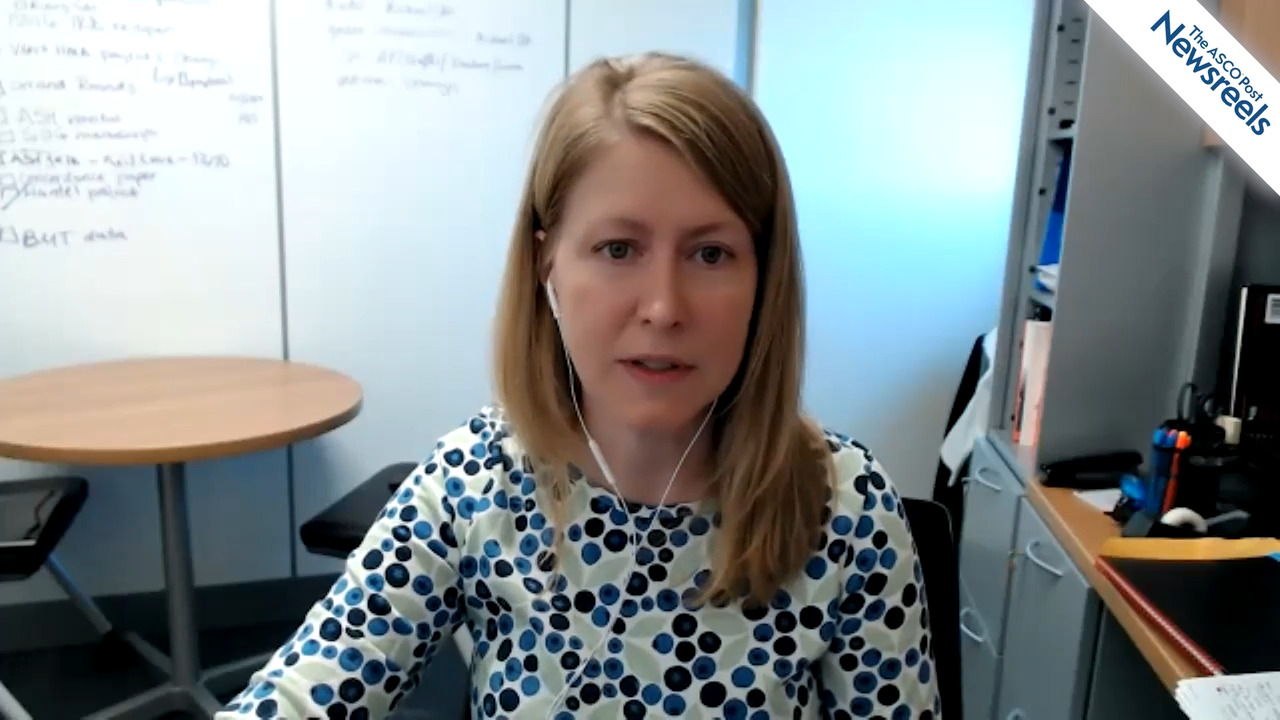NCCN 2021 Virtual Congress: Hematologic Malignancies
Novel Therapies Under Study in Acute Myeloid Leukemia
Newly identified genetic abnormalities in acute myeloid leukemia (AML), as well as therapies that can target some of those abnormalities, are now available as the landscape for treatment continues to ...
Novel Therapies Under Study in Acute Myeloid Leukemia
Newly identified genetic abnormalities in AML have led to novel therapies that can target some of them, as the landscape for treatment continues to evolve. During the 2021 National Comprehensive Cance...
Newer Agents on the Horizon for Refractory or Relapsed DLBCL
Although treating patients with relapsed or refractory diffuse large B-cell lymphoma (DLBCL) remains challenging, some newer therapies on the horizon offer promise, including bispecific antibodies, an...
Ronald S. Go, MD, on Managing Histiocytic Neoplasms: New NCCN Guidelines
Ronald S. Go, MD, of Mayo Clinic Cancer Center, discusses the new NCCN Clinical Practice Guidelines in Oncology for the most common types of histiocytic neoplasms in adults—Erdheim-Chester disease, La...
Shaji K. Kumar, MD, on Newly Diagnosed Multiple Myeloma: How Many Drugs Are Enough?
Shaji K. Kumar, MD, of the Mayo Clinic Cancer Center, discusses the evolving treatment paradigm for patients with newly diagnosed multiple myeloma in which clinical trials are suggesting the addition ...
Numerous Regimens Proposed for Relapsed or Refractory Myeloma
Although patients with multiple myeloma can respond to initial treatment, once a patient has had three or four different types of therapy, and the disease is deemed relapsed or refractory, treatment b...
Jennifer A. Woyach, MD, on CLL/SLL: Using Minimal Residual Disease Assessment in Clinical Practice
Jennifer A. Woyach, MD, of The Ohio State University Comprehensive Cancer Center, talks about whether modifications of treatment based on minimal residual disease is beneficial to patients with chroni...
Alice S. Mims, MD, on AML: Updates on Managing Newly Diagnosed Disease
Alice S. Mims, MD, of The Ohio State University Comprehensive Cancer Center, discusses the many positive changes over the past 5 years in treating patients with newly diagnosed acute myeloid leukemia ...




